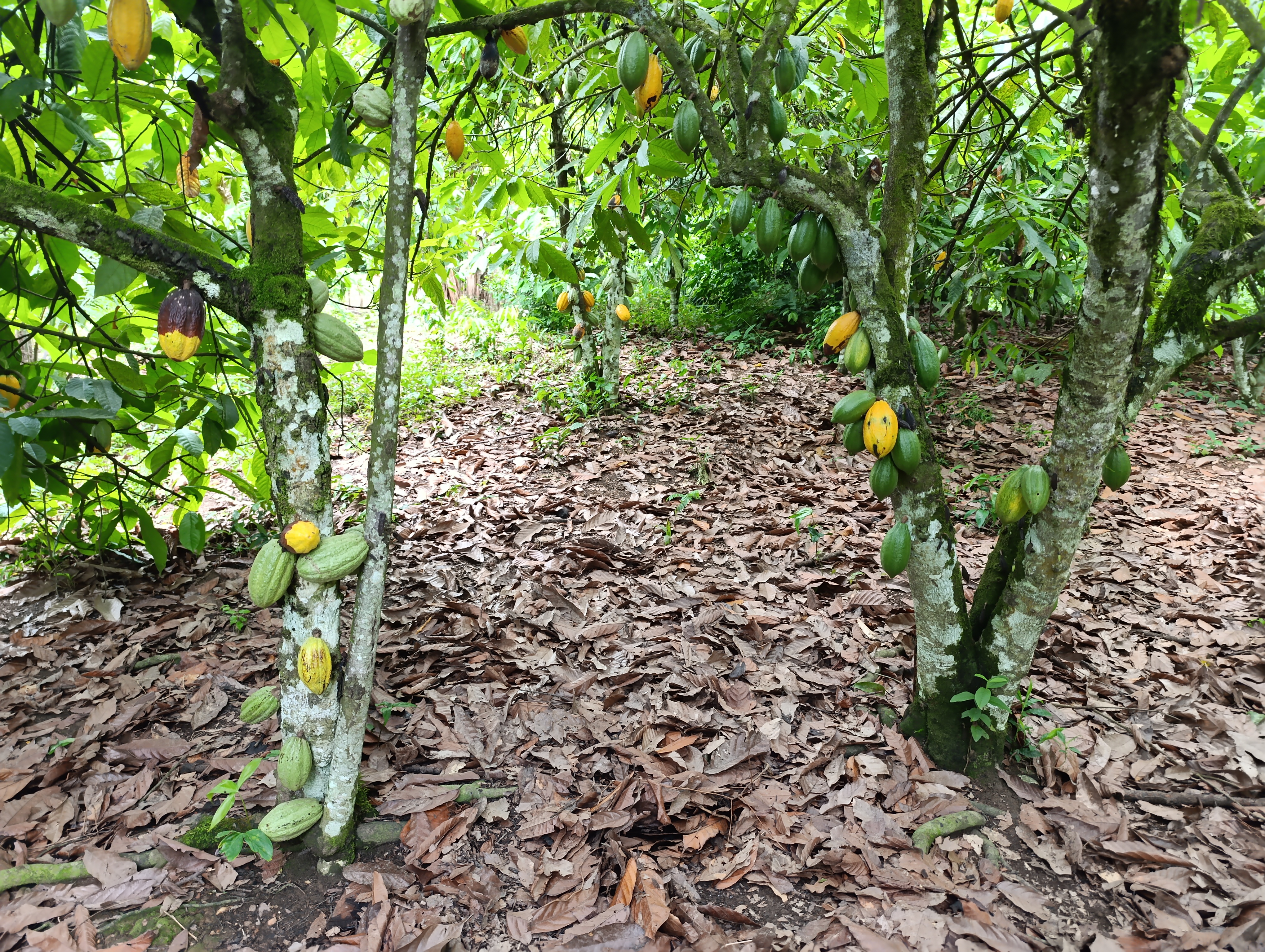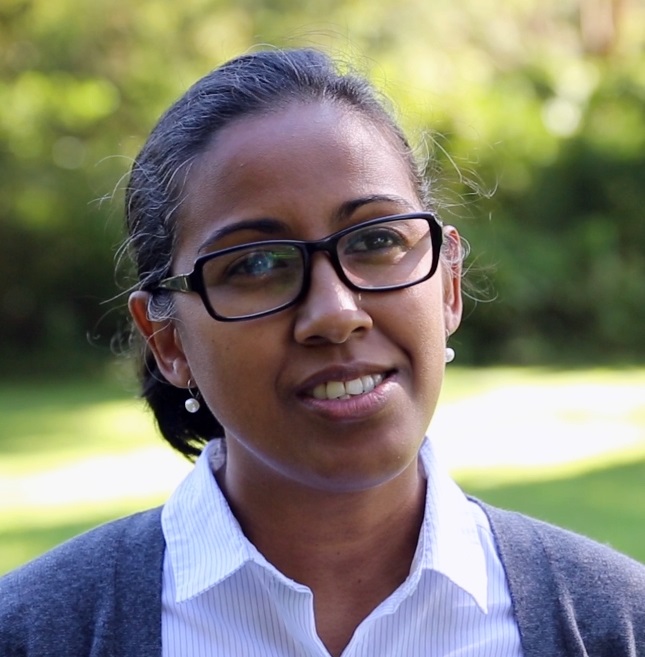Whether biting down a chocolate bar or sipping a soothing hot chocolate drink, it is highly likely that the cocoa used in these treats was grown in Côte d'Ivoire, the world’s top producer.
But to ensure such pleasures are more guilt-free, chocoholics are increasingly demanding that cocoa used in confectionary does not harm the environment and is sustainable – exactly what the PROMIRE project (Promoting Deforestation-Free Cocoa Production to Reduce Emissions) in Côte d'Ivoire aims to achieve.
The project, which began in 2022, supports the country in finalizing the development and operationalization of REDD+ (Reducing Emissions from Deforestation and forest Degradation) tools and to implement direct actions at the jurisdictional level to reduce the impacts from cocoa production on forests in three regions: La Mé, Agneby Tiassa, and Sud-Comoé.
Cocoa production in Côte d'Ivoire is crucial for economic, social, and environmental reasons. Economically, Côte d'Ivoire is the world's leading exporter of cocoa and the sector employs almost a quarter of the population. However, the expansion of cocoa plantations is considered one of the main drivers of deforestation and biodiversity loss.
Through its holistic approach, the PROMIRE project implements activities such as territorial planning, capacity building, particularly on topics related to zero-deforestation agriculture, cooperative and associative management – aiding women’s empowerment - and sustainable farming.
PROMIRE also supports land tenure security, along with actions to improve the quality of cocoa plantations and the restoration of degraded areas. Additionally, the project supports the finalization and operationalization of the necessary tools for implementing REDD+, initiated and complemented by assistance provided by the UN-REDD Programme in Côte d'Ivoire.
Several results have been achieved by the project to date.
Agroforestry: Towards an integrated approach
© FAO/ Dominique Kei. An agroforestry plot based on cocoa.
Agroforestry is a recognized solution for reconciling agricultural production and forest conservation. PROMIRE has adopted this approach by integrating trees within cocoa plantations. This practice promotes biodiversity, improves soil fertility, and provides additional sources of income for farmers. The project converted 1,394 hectares of existing conventional cocoa plots into agroforestry systems by 2023, benefiting 598 producers, including 84 women. Some plots have also been maintained through pruning, thinning, and trimming operations.
The beneficiaries received training in agroforestry and good agricultural practices, including pruning, trimming, mulching, and sanitary harvesting. They were also made aware of gender issues and the problem of child labor. Additionally, they received agricultural equipment kits that allow them to carry out certain mechanical agricultural tasks.
Economically, in addition to income from cocoa sales, the introduced species, including fruit trees, provide producers with additional income. For example, Kplé (Irvingia gabonensis), commonly used as a local fruit tree species with a high degree of compatibility with cocoa, offers commercial opportunities (seeds sell for between 2-5 USD/kg) in local markets. The same goes for Petit Cola (Garcinia kola) and Akpi (Ricinodendron heudelotii).
Socially, the introduction of plantain bananas, for example, improves food availability. Harvesting products from forest fruit species (akpi, kplé) and agricultural species (orange, avocado, etc.) also has a favorable impact on household food and nutritional security.
Forest restoration: A commitment to nature
© FAO/Dominique Kei. A 2-year-old restored plot of degraded land
The restoration of degraded plots is carried out using various techniques including enrichment, assisted natural regeneration, and even reforestation.
The taungya method, which is particularly appreciated by local communities, involves combining forest species with various agricultural crops during the first years of planting, thus achieving multiple objectives. These efforts have enabled the restoration and maintenance of 317 hectares of degraded plots in the 3 regions, with the participation of 60 beneficiaries, including 18 women.
Rural land tenure security: A key element of sustainability
A partnership with the project to improve and implement the rural land policy of Côte d'Ivoire (PAMOFOR) of the Rural Land Agency (AFOR) has been established to support local farmers in securing their lands. Awareness-raising about the importance of land tenure security was conducted in the La Mé region with 559 producers. The project has an ambitious goal despite the challenges encountered on the ground, with 80% of beneficiaries obtaining land certification.
“In our region, land ownership issues are complex and often subject to conflicts. I was involved in a land conflict, which is why I decided to reforest my plot”
-Kacou Grégoire | Owner of a 1.5-hectare forest restoration plot in Biéby in the La Mé region.
But the cost of acquiring this document was initially too high and unobtainable for Grégoire.
“But thanks to the PROMIRE project, from which I am a beneficiary, I can obtain my land certificate for free. This awareness campaign is therefore welcome,” he added.
Colonel Assamoi Jonas, national coordinator of the project, said that beyond raising community awareness about land tenure security, the aim is also to reduce uncontrolled access to land and promote long-term investments through the private sector for activities such as forest restoration and agroforestry.
“By the end of these awareness campaigns, we want to see the majority of beneficiaries obtain their land certificates," said Jonas.
Towards a sustainable future for the Ivorian cocoa industry
The PROMIRE project represents a concrete commitment to environmental and social sustainability by providing technical support to government actors, private companies, and local communities in Côte d'Ivoire.
By restoring forests, promoting agroforestry, and securing farmers' land rights, PROMIRE embodies an ambitious vision for more sustainable and equitable cocoa production in Côte d'Ivoire, ensuring a better future for future generations. This vision stems from and is perfectly aligned with the content and objectives of the national REDD+ strategy and its national investment framework, whose development and implementation have benefited from the technical assistance of the UN-REDD Programme.
PROMIRE is jointly implemented by the Food and Agriculture Organization of the United Nations (FAO) and the Ministry of Environment, Sustainable Development, and Ecological Transition (MINEDDTE), and funded by the Green Climate Fund (GCF).
Know more:
Setting up Côte d'Ivoire’s cocoa sector for climate resilience
Promoting zero-deforestation cocoa production for reducing emissions in Côte d'Ivoire (PROMIRE)



